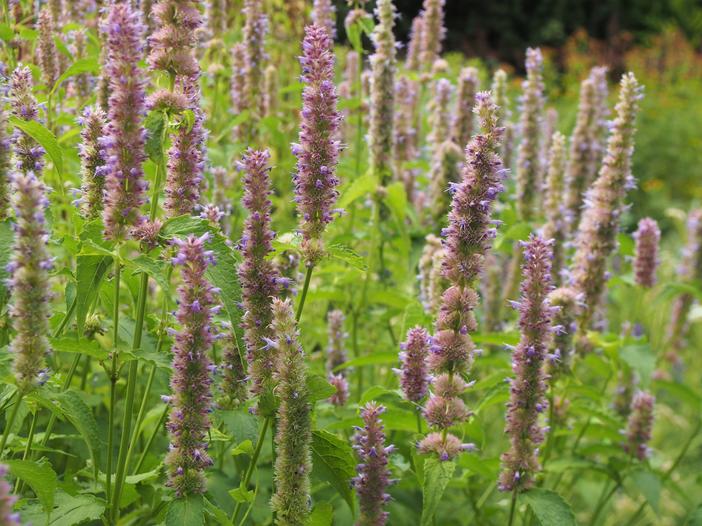Mexican Giant Hyssop
(Agastache mexicana)
Mexican Giant Hyssop (Agastache mexicana)
/
/

Agnieszka Kwiecień, Nova
CC BY-SA 4.0
Image By:
Agnieszka Kwiecień, Nova
Recorded By:
Copyright:
CC BY-SA 4.0
Copyright Notice:
Photo by: Agnieszka Kwiecień, Nova | License Type: CC BY-SA 4.0 | License URL: https://creativecommons.org/licenses/by-sa/4.0 | Uploader: Nova | Publisher: Wikipedia Commons
















Estimated Native Range
Summary
Agastache mexicana, commonly known as Mexican Giant Hyssop, is a deciduous perennial herb native to the warm, semi-arid regions of Mexico, particularly thriving in open areas and grasslands. It typically grows up to 100 cm tall and features lanceolate or oval-lanceolate leaves that emit a lemon scent when young, which is intensified by sunny days and cooler nights. The plant is self-fertile and produces tubular flowers that are highly attractive to pollinators, with a flowering season that extends from mid-summer to early fall. The flowers can range in color from pink to violet and are quite showy, adding ornamental value to gardens.
Mexican Giant Hyssop is valued for its aromatic foliage, which is used in herbal teas and culinary flavoring. It is an excellent choice for xeriscaping due to its drought tolerance and is often used in borders, herb gardens, and as a pollinator attractant. In cultivation, it requires well-drained, aerated soil that is alkaline or neutral. Overly compact or damp soils can lead to root rot. It prefers full sun to partial shade and should be avoided in heavily shaded areas to prevent yellowing and leaf loss. While it can flower at one month old, consistent watering is necessary during the establishment period.CC BY-SA 4.0
Mexican Giant Hyssop is valued for its aromatic foliage, which is used in herbal teas and culinary flavoring. It is an excellent choice for xeriscaping due to its drought tolerance and is often used in borders, herb gardens, and as a pollinator attractant. In cultivation, it requires well-drained, aerated soil that is alkaline or neutral. Overly compact or damp soils can lead to root rot. It prefers full sun to partial shade and should be avoided in heavily shaded areas to prevent yellowing and leaf loss. While it can flower at one month old, consistent watering is necessary during the establishment period.CC BY-SA 4.0
Plant Description
- Plant Type: Herb
- Height: 1-3 feet
- Width: 1-3 feet
- Growth Rate: Moderate
- Flower Color: Pink
- Flowering Season: Summer, Fall
- Leaf Retention: Deciduous
Growth Requirements
- Sun: Full Sun
- Water: Low, Medium
- Drainage: Medium, Fast
Common Uses
Bank Stabilization, Bee Garden, Bird Garden, Butterfly Garden, Deer Resistant, Drought Tolerant, Edible*Disclaimer: Easyscape's listed plant edibility is for informational use. Always verify the safety and proper identification of any plant before consumption., Fire Resistant, Fragrant, Groundcover, Hummingbird Garden, Low Maintenance, Rabbit Resistant, Rock Garden, Street Planting
Natural Habitat
Warm, semi-arid regions of Mexico, particularly thriving in open areas and grasslands
Other Names
Common Names:
Scientific Names: , Agastache mexicana, Cedronella mexicana, Brittonastrum mexicanum, Dracocephalum mexicanum,
GBIF Accepted Name: Agastache mexicana (Kunth) Lint & Epling